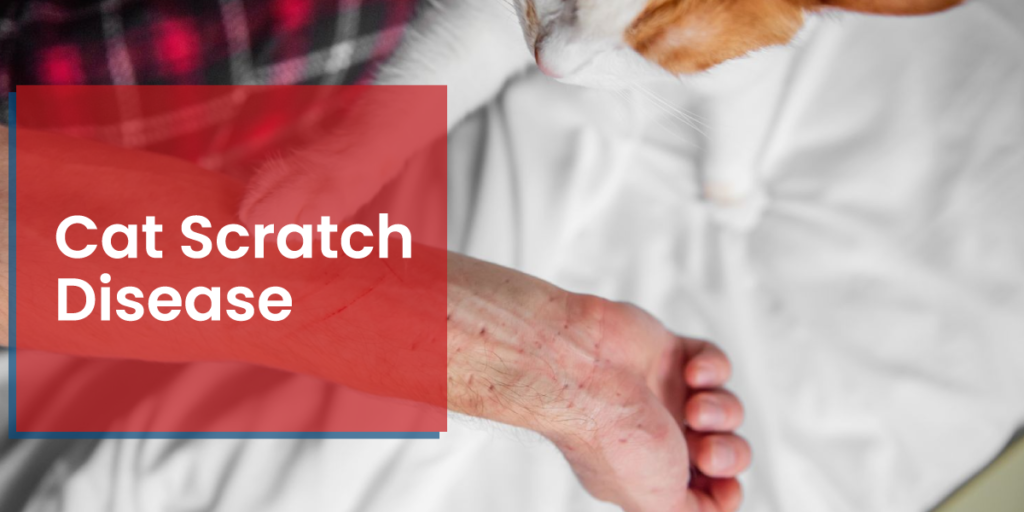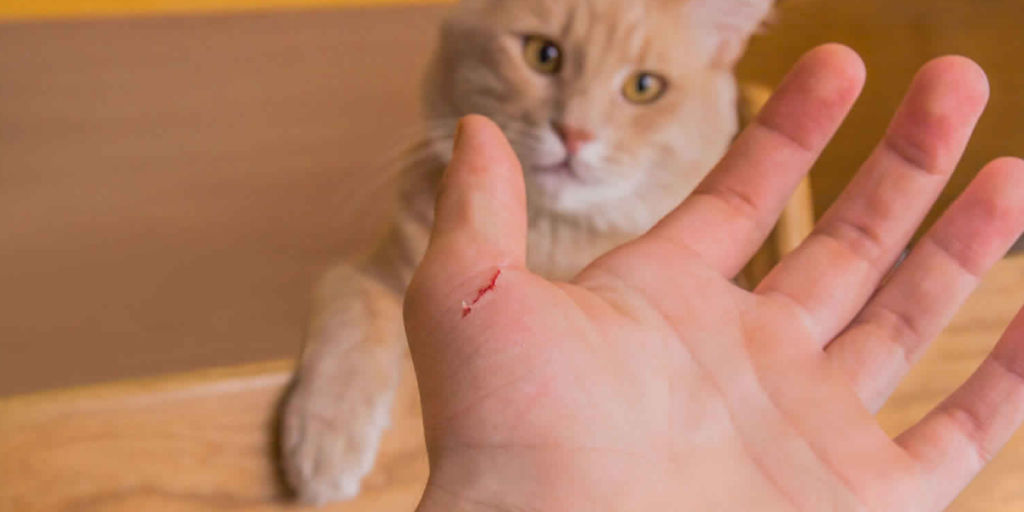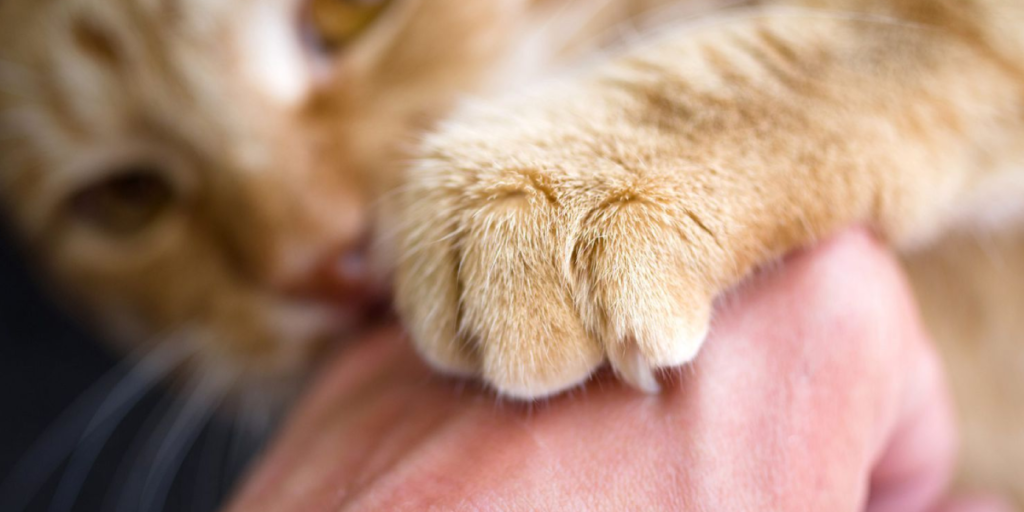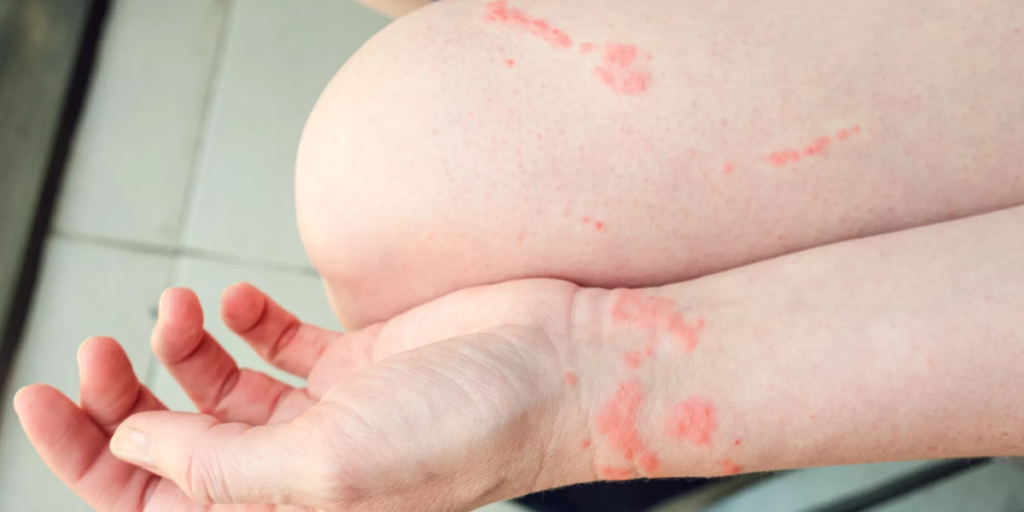Cat Scratch Disease: Everything You Must Know

Hey, have you ever been scratched or bitten by a cat and then felt kind of sick afterward? Maybe you noticed a bump, your glands swelled up, or you started running a slight fever. If that sounds familiar, you might’ve had something called Cat Scratch Fever, also known as Cat Scratch Disease.
It’s not super common, so most people don’t even know it exists. But it’s good to know what it is, especially if you have a cat at home or spend time around kittens. They can carry the bacteria that cause this without looking sick at all.
The good news is, most of the time it’s nothing to panic about. Your body can usually fight it off on its own, but in some cases, especially if someone has a weak immune system, it can get a bit more serious.
So let’s break it down together. We’ll walk you through what causes cat scratch fever, how you get it, what signs to look out for, and how to stay safe, both for yourself and your furry friend.
What is Cat Scratch Fever?

Cat Scratch Fever in humans is a bacterial infection caused by Bartonella henselae. You can get it when a cat:
- Scratches you
- Bites you
- Or even licks an open cut on your skin.
The bacteria live in cats, especially kittens, and they get it from fleas. That’s what causes cat scratch fever — the fleas pass the bacteria to cats, and cats pass it to people.
Cat Scratch Fever in Cats – Can They Get Sick Too?
Yes, cats can carry the bacteria that cause this illness, but they often don’t look sick at all. In most cases, cats don’t show any signs. However, some may show mild symptoms of cat scratch fever in cats, like:
- Swollen lymph nodes
- Low energy
- Mild fever
But again, it’s more common for cats to appear totally fine while still being able to pass the bacteria to humans.
How is Cat Scratch Disease Transmitted?
Here’s a simple breakdown of how cat scratch fever spreads:
- Fleas carry the Bartonella henselae bacteria.
- Cats (especially kittens) get infected through flea bites or by grooming each other.
People get infected when a cat:
- Scratches them with claws that touched flea dirt
- Bites them
- Licks an open wound
So, what causes cat scratch fever is really a chain from flea to cat to human.
Who’s at Risk for Cat Scratch Fever?

Most healthy people recover easily, but some are at higher risk for cat scratch fever and possible serious complications:
- Children under 15 (they love to play rough with pets)
- People with weak immune systems, such as:
- Those with HIV/AIDS
- Cancer patients
- People with diabetes
- Organ transplant recipients
Anyone who spends a lot of time with kittens, because kittens are more likely to have the bacteria (their immune systems are still developing, and they get fleas more easily).
Cat Scratch Disease in Humans – What Are the Symptoms?

Cat scratch fever in humans usually starts showing signs 3 to 10 days after a cat scratches or bites you. You might notice a red bump or blister near the spot, and soon after, the glands in your neck, armpit, or groin may become swollen and sore.
You could also feel tired, have a fever, lose your appetite, or get headaches and body aches. At first, it may just feel like a regular infection, but the swollen glands and tired feeling are usually the big hints that it could be cat scratch fever.
How Is Cat Scratch Fever Diagnosed?
To figure out if you have cat scratch disease (CSD), a doctor may:
- Look at the wound or bump
- Feel your lymph nodes
- Ask if you were recently around cats
- Sometimes, order a blood test to look for Bartonella henselae
- In some cases, they might test the fluid from swollen lymph nodes.
In many cases, though, your doctor can tell just by your symptoms and history with cats.
Treatment – How Do You Treat Cat Scratch Fever?
Most of the time, you don’t need any medicine. Your body fights off the infection on its own in a few weeks to a couple of months.
Here’s what helps:
- Pain relievers like ibuprofen or acetaminophen
- Warm compresses on swollen lymph nodes
- Rest and drink fluids.
If it’s more serious or you have a weak immune system, your doctor might give you antibiotics like:
- Azithromycin (most common)
- Doxycycline
- Rifampin
These help your body get rid of the bacteria faster and prevent complications.
Complications – Can Cat Scratch Fever Get Worse?

Yes, cat scratch fever can sometimes get worse, but this is very rare. Most people get better without any problems. However, if someone has a weak immune system (like from HIV, cancer, or certain medicines), or in very rare cases, more serious issues can happen.
For example, it can cause an infection in the heart (called endocarditis), swelling in the liver or spleen, eye problems like blurry vision or pain, or even brain issues like confusion, seizures, or swelling (called encephalopathy).
These serious problems don’t happen often, but it’s still important to keep an eye on your symptoms and see a doctor if you start feeling worse or something doesn’t seem right.
How Long Does Cat Scratch Fever Last?
- Red bumps or swollen lymph nodes can last 2 to 8 weeks.
- Fatigue might last longer in some people.
- In most cases, symptoms clear up completely without lasting effects.
When Should You See a Doctor?
See a doctor if you:
- Have a wound that’s not healing or getting worse.
- Have a fever that lasts more than a few days
- Have very painful or large, swollen lymph nodes
- Feel confused, have chest pain, vision problems, severe headaches, or seizures.
These could be signs of something more serious.
How to Prevent Cat Scratch Fever
To lower your risk of cat scratch fever, here are a few easy tips:
- Avoid rough play with kittens
- Wash your hands after touching cats
- Don’t let cats lick your open wounds
- Keep your cats flea-free (ask your vet for flea treatments)
- If your immune system is weak, avoid contact with kittens – stick to healthy adult cats instead.
- Keep your cat indoors if possible to avoid flea exposure.
So, keeping your cat healthy and flea-free is one of the best ways to prevent Cat Scratch Disease. Regular vet visits, flea control, and deworming are essential steps.
Learn more about why deworming your cat is important here.
Can Indoor Cats Give You Cat Scratch Fever?

Yes, indoor cats can still give you cat scratch fever, but it doesn’t happen often. If your cat has had fleas before or came from outside or a shelter, it might still carry the bacteria. To stay safe, make sure your cat stays healthy, take it to the vet regularly, and use flea prevention to keep fleas away.
Cats can carry the bacteria without showing any signs, especially kittens or newly adopted cats. A well-cared-for, indoor cat is less likely to spread it.
Here are simple tips to help your cat live a longer, healthier life.
Do You Need a Tetanus Shot for a Cat Scratch?

Most of the time, you don’t need a tetanus shot for a cat scratch. But doctors recommend keeping your tetanus shots up to date — usually every 10 years. If the scratch is deep, dirty, or hasn’t healed well, your doctor might suggest getting a booster shot just to be safe.
Good Questions to Ask Your Doctor
- Do I need antibiotics for this?
- What symptoms should I watch out for?
- When should I come back for a check-up?
- Should I go to the ER if I get worse?
Wrapping Up
Cat Scratch Disease (CSD) might sound a bit scary, but in most cases, it’s nothing to worry too much about. Most people get better on their own, and serious problems are rare.
Just remember:
- Keep your cat healthy and flea-free
- Be careful around kittens
- Don’t ignore a scratch or bite — clean it and watch how your body reacts.
By taking a few simple steps, you can enjoy your time with your cat without any problems!
| FAQs How do you treat cat scratch fever in humans? Most people don’t need special treatment — the fever goes away on its own. You can rest, drink water, and take painkillers like ibuprofen if needed. In serious cases, doctors may give antibiotics. How long does cat scratch fever take to show up? Symptoms usually start 3 to 10 days after a cat scratches, bites, or licks an open wound. Sometimes it can take up to 2 weeks before you feel sick. How to treat cat fever at home? If your cat has a fever, keep it calm, offer water, and make sure it rests. Never give human medicine — always call your vet if the fever stays or gets worse. Is cat-scratch disease serious? Most of the time, it’s mild and goes away on its own. But in people with weak immune systems, it can sometimes lead to serious problems, so it’s good to watch for symptoms. |